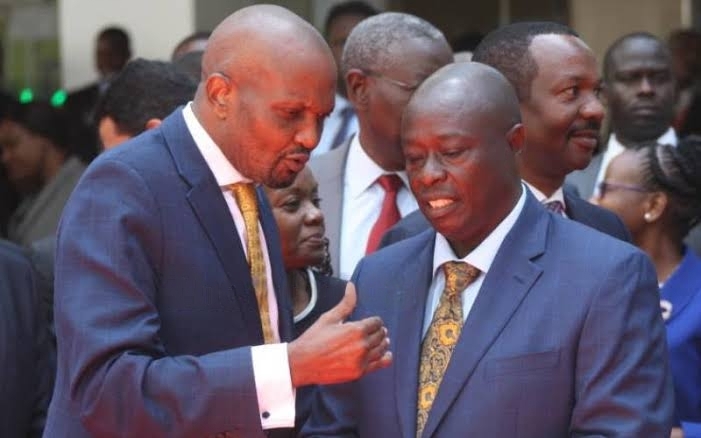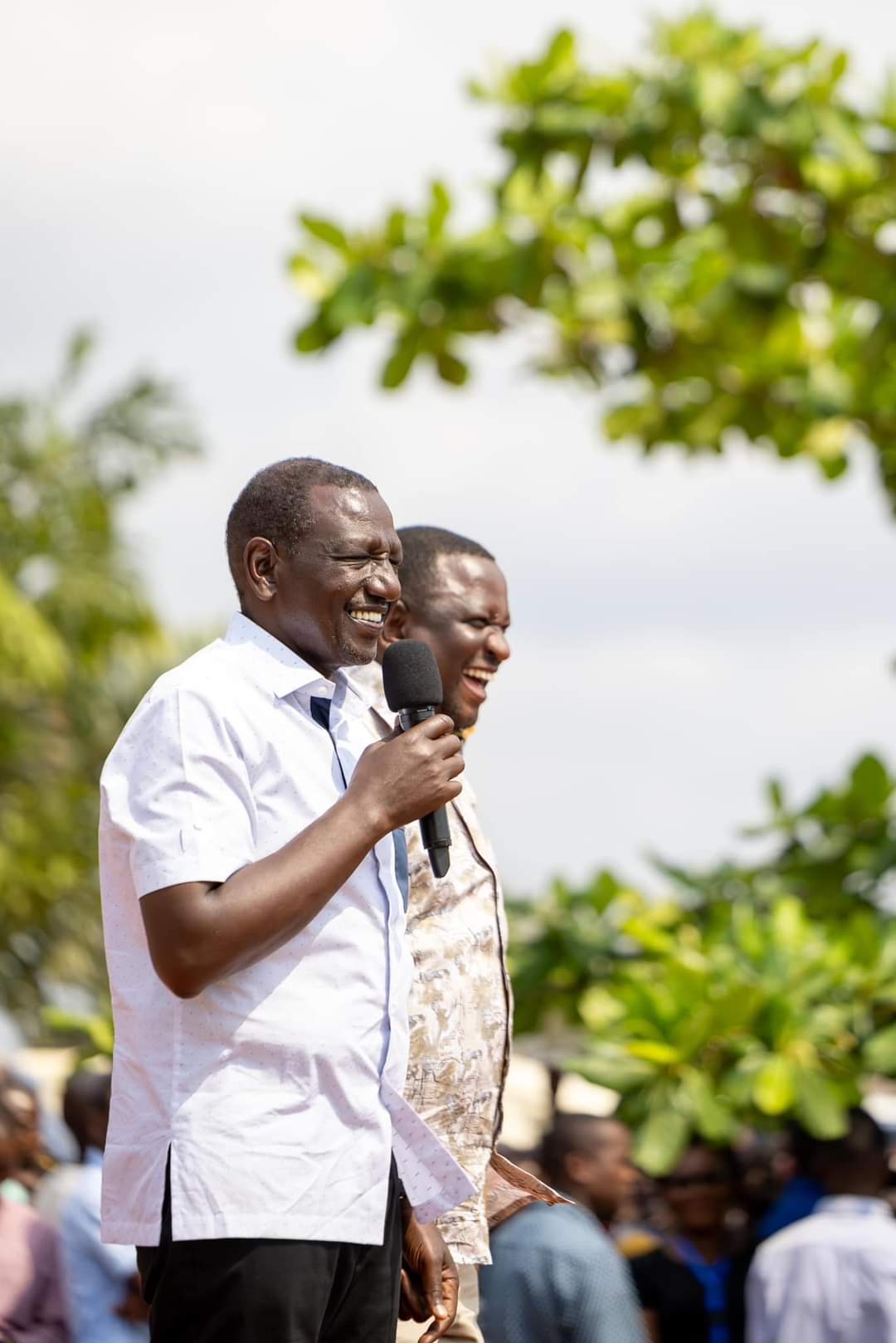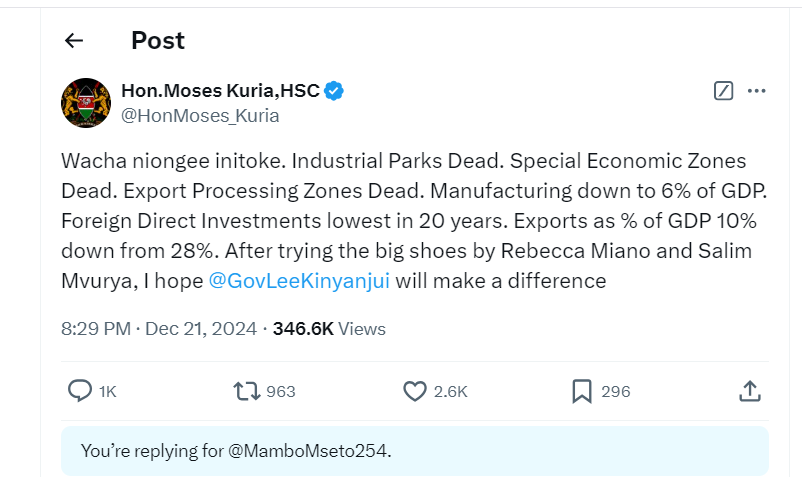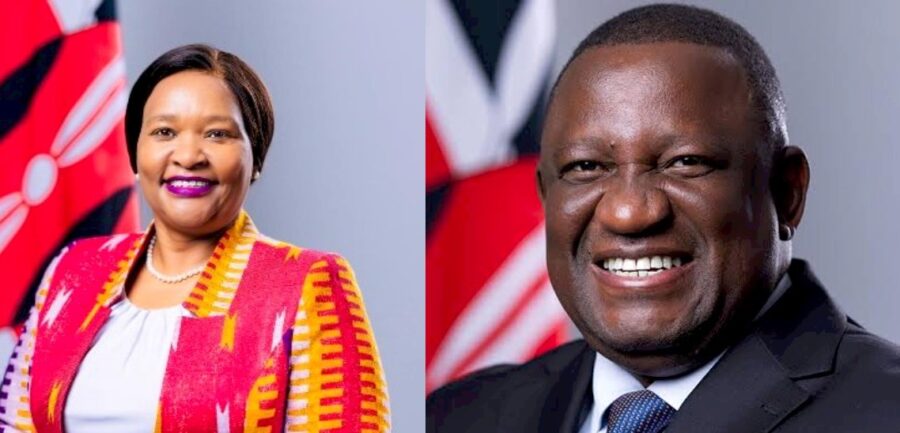Former Trade CS Moses Kuria, the pioneer of Kenya’s industrial parks and special economic zones, isn’t holding back about the sorry state of the country’s trade and industrial sectors.
In what seems like a veiled attack on his successors, Kuria listed everything that has gone wrong in recent years, painting a picture of stagnation and decline in projects he once championed.

Public service CS Hon. Moses Kuria chats with Deputy President Hon. Rigathi Gachagua during a past state event
“Wacha niongee initoke. Industrial parks, dead. Special economic zones, dead. Export processing zones, dead. Manufacturing is down to 6% of GDP. Foreign direct investments are at a 20-year low. Exports as a percentage of GDP have dropped to 10% from 28%,” Kuria lamented.
As the pioneer of industrial parks and special economic zones, Kuria’s frustration was evident.
These projects, launched under his watch, were meant to boost Kenya’s economy by attracting investments and creating jobs. Now, according to him, they’re barely functioning.

President William Ruto with CS nominee Salim Mvurya during a rally on July 27.
While he didn’t directly blame Rebecca Miano or Salim Mvurya, who followed him as Trade CSs, his words seemed to suggest their leadership didn’t deliver the results he envisioned.
“They tried the big shoes, but the numbers speak for themselves,” he said, hinting at missed opportunities.
Kuria is now pinning his hopes on Lee Kinyanjui, the Trade CS nominee, to bring some much-needed change.
“I hope Lee Kinyanjui will make a difference,” he remarked, signalling cautious optimism for the future.

For Kinyanjui, the task ahead is enormous. He’ll need to revive industrial parks, attract foreign investments, and boost Kenya’s exports—all while navigating the legacy of past failures. Kuria’s message is clear: there’s no time to waste if Kenya is to reclaim its position as a competitive player in global trade.



